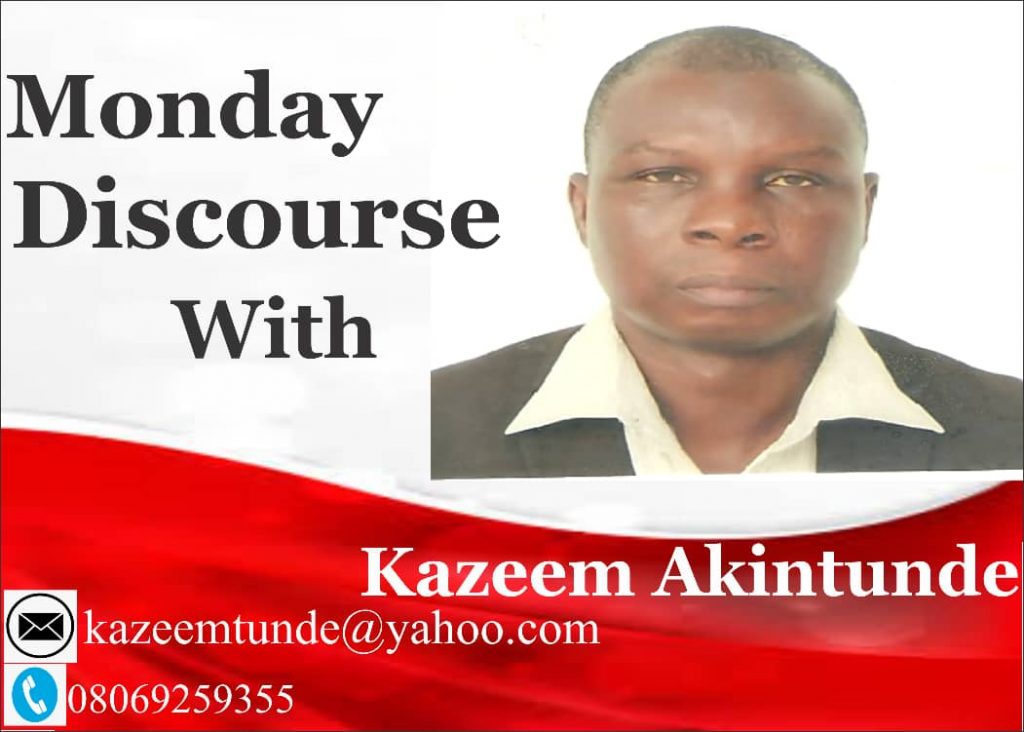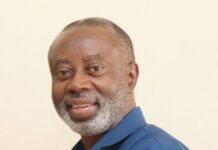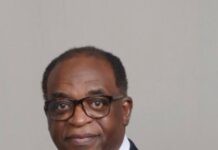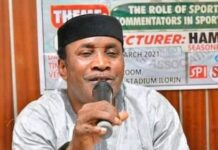
Nigerians on Saturday went to the poll to elect a brand new president for the country. Eighteen of their compatriots are on the ballot, vying for President. Already, results have started trickling in and sooner than later, the winner will be announced by the Independent National Electoral Commission, INEC. However, let us take a look at the cost implications of the election, in terms of the naira and kobo, and the human lives lost even before the first vote was cast.
Aside from that, what is the cost implication of shutting down the Nation for almost 24 hours every four years just to elect new leaders for the country? It is a known fact that politicians spend a fortune to get elected. Are they doing that because they love us, or has it become a sort of investment where they are expected to make huge returns?
For the presidential election held on Saturday, it is a fact that for each of the three leading presidential candidates trying to lead us for the next four years, nothing less than N100 billion would have been spent to win their respective party tickets, canvassing for votes, logistics for campaigns, and payment of stipends for delegates and other officials across the country. Forget the fact the Electoral Act 2022 as amended pegged the amount that should spent at N5 billion. Indeed, section 91 (2) of the Act stated that the maximum election expenses to be incurred by a candidate at a presidential election shall not exceed N5, 000,000,000.00.
Payment for over 176,846 agents that would man each of the 176,846 polling units across the country alone is huge. Even if all the major candidates have one agent in each of the polling units and decided to pay N10, 000, that is a colossal amount of money. That is aside from the several billions that have been spent on campaign tours across the country in the last six months. Aside that, there are other huge sums of money spent on campaign adverts, the erection of billboards, printing of Tee-shirts and face caps and other campaign materials whose cost also run to several billions of naira. Agreed that the money is within the system and it would boost the overall economy, but the money will still have to come from somewhere. Many of the presidential candidates have one or more private jets for the campaign. Either owned, borrowed, or hired, the candidates must still cough out several billions of naira for their campaign tours across the country.
Again, many of the political parties in past elections usually provide logistics support to INEC staff, security agents, and sundry staff on Election Day, and these too, runs into several millions of naira. These are some of the issues President Muhammadu Buhari is trying to curb with his late-hour naira redesign /cashless policy which has rendered most Nigerians koboless in the last few weeks. It wasn’t a surprise, therefore, that the stiffest opposition to his plan came from his own political party. The battle has now shifted to the Supreme Court.
As it is obtainable in a presidential contest, so it is in the race for the National Assembly seats, governorship, and the race for state Houses of Assembly tickets. Politicians spend huge sums of money to get elected and nobody should be surprised when they get to power and look after their own interests- their pockets alone.
Four days before the poll, the Inspector General of Police, Usman Alkali Baba issued a statement through Muyiwa Adejobi, the Force’s Public Relations Officer, to shut down the country for almost 18 hours on election day. Except for those of essential services such as INEC officials, Electoral observers, the media, ambulances responding to medical emergencies, and firefighters amongst others, anyone caught on the road would be arrested and charged in court. The order, the IGP stated, was part of measures emplaced to ensure a safe, secure, and conducive environment for the conduct of elections, ensuring public order management, the safety of electorates, as well as assisting the security agencies’ in effective policing.
A few hours after his media statement, the head of Immigration also announced the closure of all land borders in the country. The Comptroller General of the Nigeria Immigration Service NIS, Isah Idris Jere, said that the closure would be for 24 hours. Neither Baba nor Idris Jere have come out to tell us about the cost implication of their directives on the nation’s economy. It has been our tradition to always shut down the country for elections. But is that how it is done in the more advanced world? Is the economy of the United States of America or the United Kingdom shut down anytime they are conducting elections? Have we sat down to look at the cost implication to our economy and decide whether it is something we can sustain? Is it in our economic interest to shut down the nation for 24 hours during polls? How much are we losing whenever we conduct elections?
Nobody has ever sat down to think through this? How are they conducting elections in the USA and UK without having to close borders and shut down their countries? Can we pick one or two lessons from them and see how the Nation’s economy can still thrive on election day? Though elections are held on Saturdays in Nigeria, we still lose over N1 trillion worth of business transactions in the informal sector whenever movement is restricted and borders are closed for polls. Is it worth it? Can our already weak economy sustain such a huge loss?
Another huge loss recorded in the build-up to this year’s poll was the lives of eight undergraduates of Madonna University, Elele, Rivers State, who lost their lives when the bus in which they were traveling had an accident. Ordinarily, there was no reason for the students to leave their campus after wasting eight months at home during the needless ASUU strike that ended recently. But the lads were ordered out of their campuses on the directive of the National University Commission, NUC, to the effect that all tertiary Institutions in the country must be shut down for three weeks to enable students to cast their votes during elections. It was the forced holiday declared by the NUC that precipitated the homeward journey for the lads before they met their untimely deaths. Again, the forced closure of tertiary institutions in the country will definitely have a huge impact on the nation’s economy but it appears no one cares. Elections are far more important than all other things. The fear of the unknown also forced many private secondary schools to close their gates and send their wards home as no one is sure of what will happen during the polls. So much for wasted time and energy!
Even before the first vote was cast, there has been a huge loss of human lives. Case in point being those politicians who were eliminated one way or the other by political opponents. Labour Party’s Senatorial candidate for Enugu East senatorial zone, Oyibo Chukwu, and six of his supporters led the pack as they were burnt to death by political opponents who disguised as unknown gunmen at Amachi Awkunanew, Enugu State, few days before the poll. INEC had no choice but to suspend the conduct of election in the senatorial zone. Aside from Chukwu, several others have been attacked with many fatalities recorded.
The other day, a supporter of Peter Obi’s Labour Party was attacked in Lagos, during which he lost an arm. INEC has also lost no fewer than 9,836 smart card readers in over 42 attacks on its offices and staff in three years. In the recent past, several INEC offices were set ablaze in the South east and Southwest. Also, more than 1,149 persons, including INEC employees and security officers were killed in the three elections held in 2011, 2015 and 2019. Ballot papers, cubicles and other materials were similarly destroyed. Recently, an INEC worker identified as Anthony Nwokorie, was shot dead by gunmen while conducting the continuous voter registration in the Ihitte Uboma Local Government Area of Imo State. These are human lives wasted and lives ruined. A big cost to our national development.
Even to organize the polls, the federal government had to budget huge sums of money for the conduct of elections in the country. And the trend has been on a gradual rise. From N112.9 billion in 2011, INEC expended N242 billion in 2019. It has asked for N305 billion to conduct the 2023 general elections. This is quite a quantum leap.
Given the dwindling revenues accruing to the Federal Government, especially in the wake of the COVID-19 pandemic, most Nigerians would argue that this amount could be deployed to other areas of desperate need such as education, health and transport sectors or used to address insecurity. In spite of these, elections are crucial and are indispensable precursors to democracy. And to be fair, the Independent National Electoral Commission (INEC), and indeed other Election Management Bodies (EMBs) in the West African sub region, have been worried over the rising cost of elections. Consequently, they have challenged themselves as to how to substantially reduce these costs in order not to be seen as cogs in the wheel of development in their respective countries.
First, the number of political parties keep increasing. From some three political parties in 1999, we had a record 73 in 2019. Now we have 18. Also, INEC has introduced a number of technological innovations, which have proven to be game changers and enhanced the transparency of elections. They range from the DDCMs to the Permanent Voter Card (PVC) to the Smart Card Reader (SCR) to the Bimodal Voter Accreditation System (BVAS). Though these innovations are inspired by our peculiar needs and designed by INEC Engineers, they are manufactured abroad. And they certainly cost money.
Second, an exponential increase in the number of political parties increases the quantity of election materials such as ballot papers, results sheets, cubicles and ballot boxes needed to conduct elections. These are either printed or manufactured abroad. These sensitive materials, particularly the ballot papers and results sheets, are usually colour-coded, bear water marks and other security features.
Again, in the course of conducting general elections, the Commission deploys staff – ad hoc and permanent, across the country. With existing 176,846 Polling Units (PUs), INEC will require, going by the template used in the 2019 elections, four ad hoc staff per Polling Unit. This comes to 707,384. This is not to add Collation Officers, Returning Officers, Supervisory Officers etc. It will also require at least two security agents to man each of these PUs. This comes to 353,692 . Additionally, INEC will have security agents stationed at the Ward Level and at State boundaries providing Outer Security Cordon. These staff and security agents have to be trained, fed, transported and paid duty allowances.
We spend huge amounts of money to elect our leaders and the implications for our economy are enormous. But what do we usually get in return? Misery and underdevelopment. Now the poverty capital of the world, many Nigerian politicians are billionaires and their families are made for life, from our commonwealth. It is my humble opinion that we should design a new template for getting competent and honest leaders to offices to preside over us.
See you next week.



